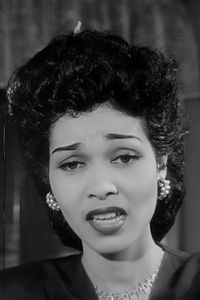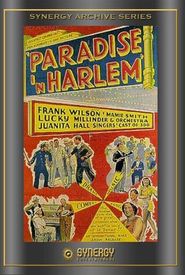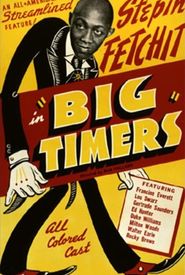Francine Everett, a woman of unparalleled beauty, was widely regarded as one of the most stunning actresses to ever grace the silver screen. Her undeniable charm, captivating presence, and mesmerizing talent combined to make her a household name among black audiences, as she effortlessly commanded attention and admiration in her starring roles within the pioneering race films, now affectionately referred to as Black Cinema.
Francine's relatively modest level of exposure belied the overwhelmingly positive reception of her performances, which showcased her remarkable talent and impressive range.
Her capacity to imbue her characters with a rich sense of depth and nuance, combined with her unassuming and approachable demeanor, rendered her a relatable and endearing figure to black audiences, who were drawn to her authenticity and vulnerability.
As a result, Francine's work resonated deeply with those who saw her, leaving a lasting impression and cementing her status as a talented and versatile performer.
While her peers, the illustrious Lena Horne and the captivating Dorothy Dandridge, faced the daunting task of reconciling their Hollywood aspirations with their African American heritage, they frequently found themselves torn between the desire to succeed and the need to conform to the prevailing white standards of the industry. This led to a perpetual sense of compromise, as they felt pressured to downplay their authenticity and forsake their black identity in order to gain acceptance and recognition.
Francine's impressive repertoire extended far beyond the realm of acting, as she effortlessly transitioned between various mediums to showcase her remarkable multifaceted talents. With a remarkable flair for the dramatic, she effortlessly captivated audiences as she appeared in over 100 soundies, treating fans to a mesmerizing display of her singing and dancing prowess. Her soulful, melodious voice, coupled with her captivating stage presence and effortless charm, earned her a reputation as a beloved performer, winning the hearts of fans from far and wide. Furthermore, her remarkable versatility also extended to the world of modeling, where she effortlessly commanded attention as she posed for print ads, magazines, and newspapers, solidifying her status as a fashion icon, renowned for her impeccable style and unwavering sense of poise.
Francine's illustrious career in the entertainment industry commenced with her enrollment at the esteemed Federal Theater in Harlem, a renowned institution backed by the Works Progress Administration, a federal agency established during the Great Depression to provide jobs for millions of Americans. This prestigious institution, which played a pivotal role in preserving American theater during the 1930s and 1940s, served as the perfect springboard for Francine's future success.
As her career progressed, Francine's personal life took an intriguing turn when she married the illustrious actor Rex Ingram, a thespian who gained widespread recognition for his captivating portrayal of the character De Lawd in the classic 1936 film "Green Pastures". Directed by Oscar Micheaux, this groundbreaking film was a significant milestone in the development of African American cinema, offering a powerful portrayal of African American life and culture.
Notably, Francine was extended an offer to appear in "Green Pastures" alongside her husband Rex, but she declined the opportunity, citing concerns about perpetuating racial stereotypes in the film. This bold decision demonstrated Francine's commitment to promoting authentic and respectful representations of African American culture in the entertainment industry.
Francine's extensive and illustrious filmography boasts a diverse array of cinematic masterpieces, featuring some of the most enduring and iconic titles within the realm of Black Cinema. Notably, her impressive repertoire includes the critically acclaimed "Paradise in Harlem", the energetic and action-packed "Keep Punching", the high-stakes drama "Big Timers", the dazzling spectacle of "Stars on Parade", the sultry and seductive "Tall, Tan, and Terrific", the provocative and groundbreaking "Dirty Gertie from Harlem U.S.A.", and the visually stunning and rhythmically charged "Ebony Parade". Throughout these films, Francine's remarkable versatility as a performer was on full display, as she effortlessly transitioned between dramatic turns, showcasing her impressive range, and captivating audiences with her musical numbers, leaving a lasting impact on the world of cinema.
Francine's portrayal of Desdemona in "Paradise in Harlem" was nothing short of remarkable, as she brought a depth of emotion and sensitivity to the character that resonated deeply with audiences. Her ability to convey a sense of vulnerability and desperation in the role was particularly noteworthy, as it added a layer of complexity to the character that was both captivating and relatable.
One of the most memorable aspects of Francine's performance was her rendition of the iconic "plead for mercy" scene, which has become an enduring image in the minds of those who witnessed it. Her delivery of the scene was both haunting and powerful, as she conveyed the character's anguish and despair with a level of nuance and emotional intensity that left a lasting impression on all who saw it.
Even years after the performance, Francine's rendition of the "plead for mercy" scene remains an unforgettable moment in the world of theater, a testament to her exceptional talent and dedication to her craft.
Francine's remarkable legacy in the entertainment industry is a testament to her unwavering dedication to her craft and her unrelenting passion for storytelling.
As a pioneering figure, she single-handedly shattered glass ceilings, boldly defying conventional norms and stereotypes that had long marginalized black actresses from leading roles.
With her unyielding artistic vision, she blazed a trail, illuminating the path for countless others who dared to dream of a brighter, more inclusive future in the industry.
Through her unwavering commitment to Black Cinema, she not only left an indelible mark on the world of filmmaking but also etched her name among the pantheon of the greatest black actresses in history, forever changing the landscape of representation and opportunity for black talent.
Francine's remarkable achievements serve as a beacon of inspiration, reminding us of the transformative power of art to challenge, to provoke, and to uplift, as she continues to leave an enduring legacy that will be cherished for generations to come.
Francine's unwavering dedication to her artistic vision and her unshakeable commitment to showcasing authentic Black experiences on the big screen, led to a series of rejections and rebuffs from Hollywood studios, who were eager to mold her into a generic, marketable commodity, rather than embracing her unique perspective and talent.
Despite the obstacles and setbacks, Francine refused to compromise her artistic integrity, and instead, continued to produce and act in films that were true to her vision and the culture she sought to represent.
Her unwavering commitment to Black Cinema, and her refusal to conform to the industry's expectations, ultimately led to a lasting impact on the industry, as she paved the way for future generations of Black filmmakers and actors.
Francine's legacy is a testament to the power of staying true to one's artistic vision, and the importance of representation and authenticity in the entertainment industry.
As a result of her tireless efforts, Francine left an indelible mark on the industry, and her influence can still be felt today, as a beacon of hope and inspiration for those who seek to make a difference through their work.






















